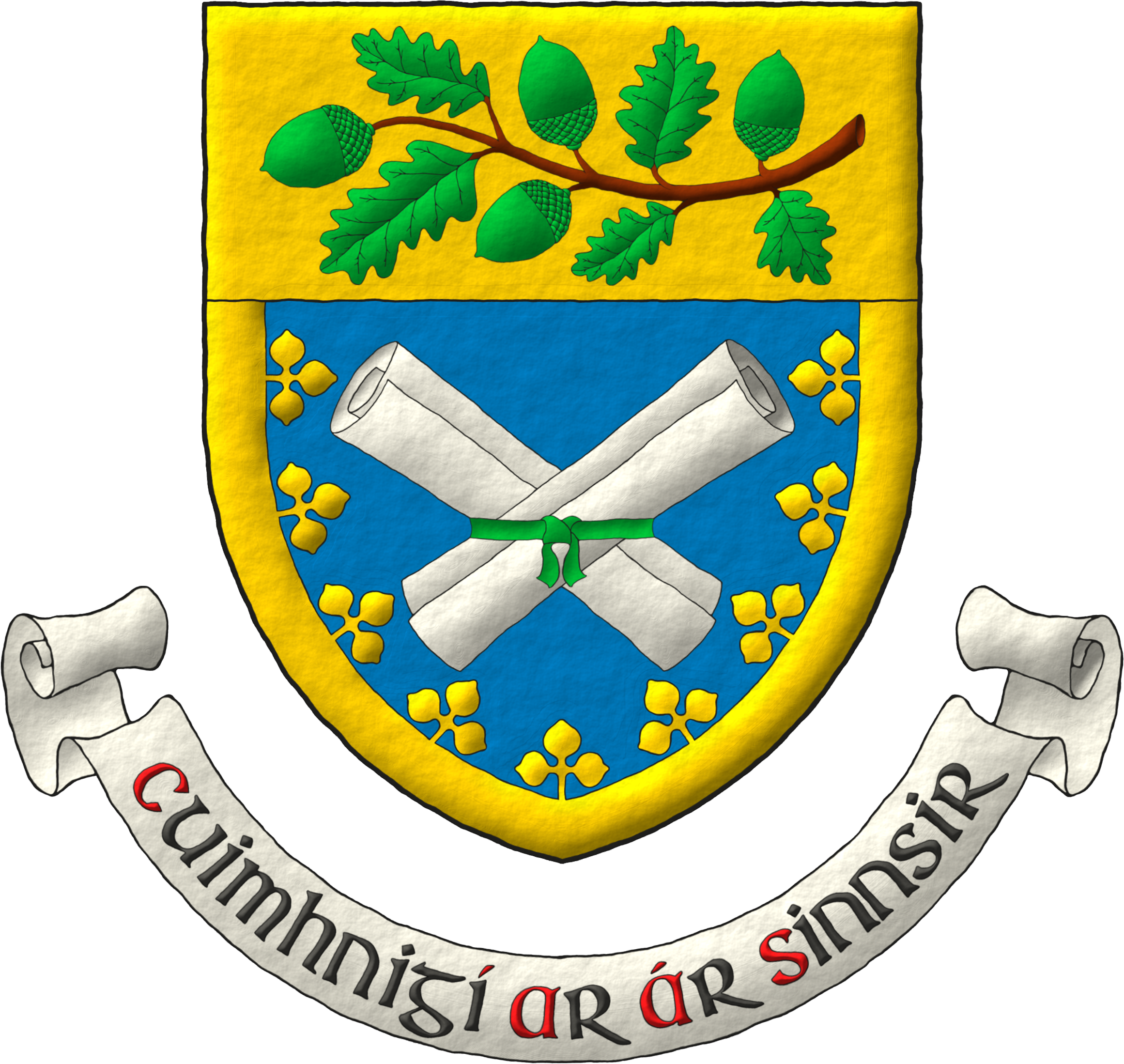Irish DNA Atlas
IRISH DNA ATLAS PROJECT
The ‘Irish DNA Atlas’ is a population DNA study of the island of
Ireland established in 2011 and run by researchers at Royal College
of Surgeons in Ireland (RCSI) in collaboration with the
Genealogical Society of Ireland (GSI).
Participants of the study provide a saliva sample and genealogical
data.
Analysis of this genealogical information by the Genealogical Society of Ireland allows the selection of participants whose eight great-grandparents have all been born within 50km of each other – meaning that the recent genetic and genealogical ancestry each Irish DNA Atlas participant is representative of a specific location within Ireland.
Analysis of this genealogical information by the Genealogical Society of Ireland allows the selection of participants whose eight great-grandparents have all been born within 50km of each other – meaning that the recent genetic and genealogical ancestry each Irish DNA Atlas participant is representative of a specific location within Ireland.
The Irish DNA Atlas is a biobank designed to facilitate research into
the population genetics and history of Ireland. Information about a
population's past, such as population size, historical migrations, and
communities within the population, can leave footprints in the
collective genome of that population.
Studying the current genetic variation can reveal these footprints and shed light on past events. The footprints of this history can also impact the frequency of particular genetic diseases in a population. Therefore, a greater understanding a population's genetic diversity and history can aid the research into the genetics of disease in a population. Such work can help explain why particular communities have elevated rates of specific diseases and provide a foundation for better treatments.
Studying the current genetic variation can reveal these footprints and shed light on past events. The footprints of this history can also impact the frequency of particular genetic diseases in a population. Therefore, a greater understanding a population's genetic diversity and history can aid the research into the genetics of disease in a population. Such work can help explain why particular communities have elevated rates of specific diseases and provide a foundation for better treatments.
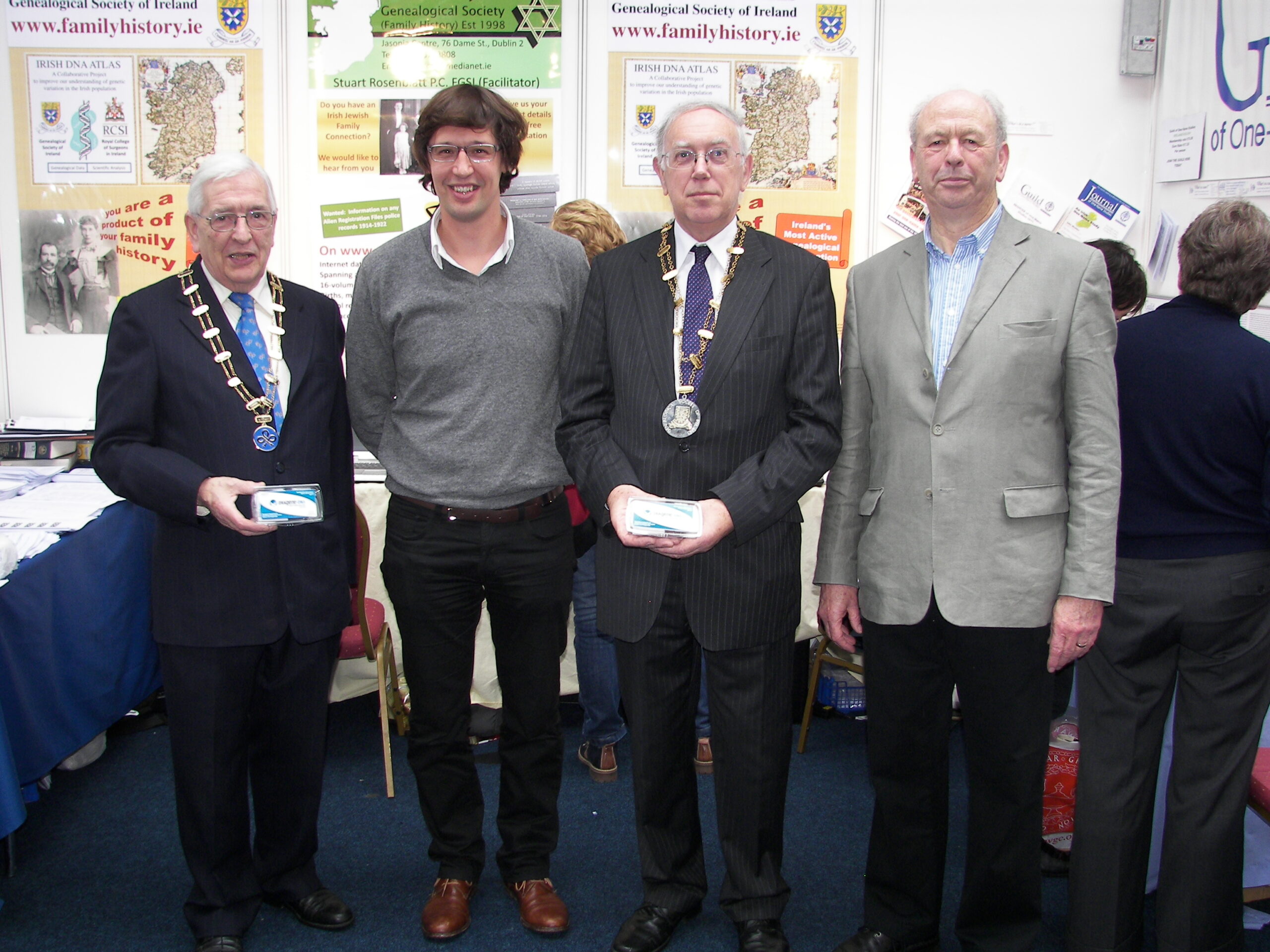



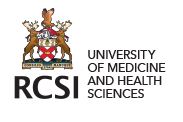
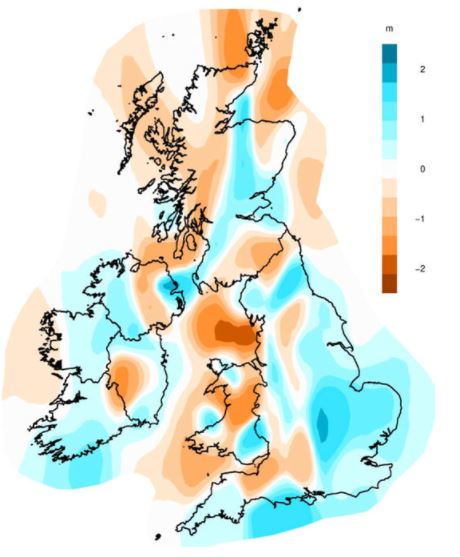
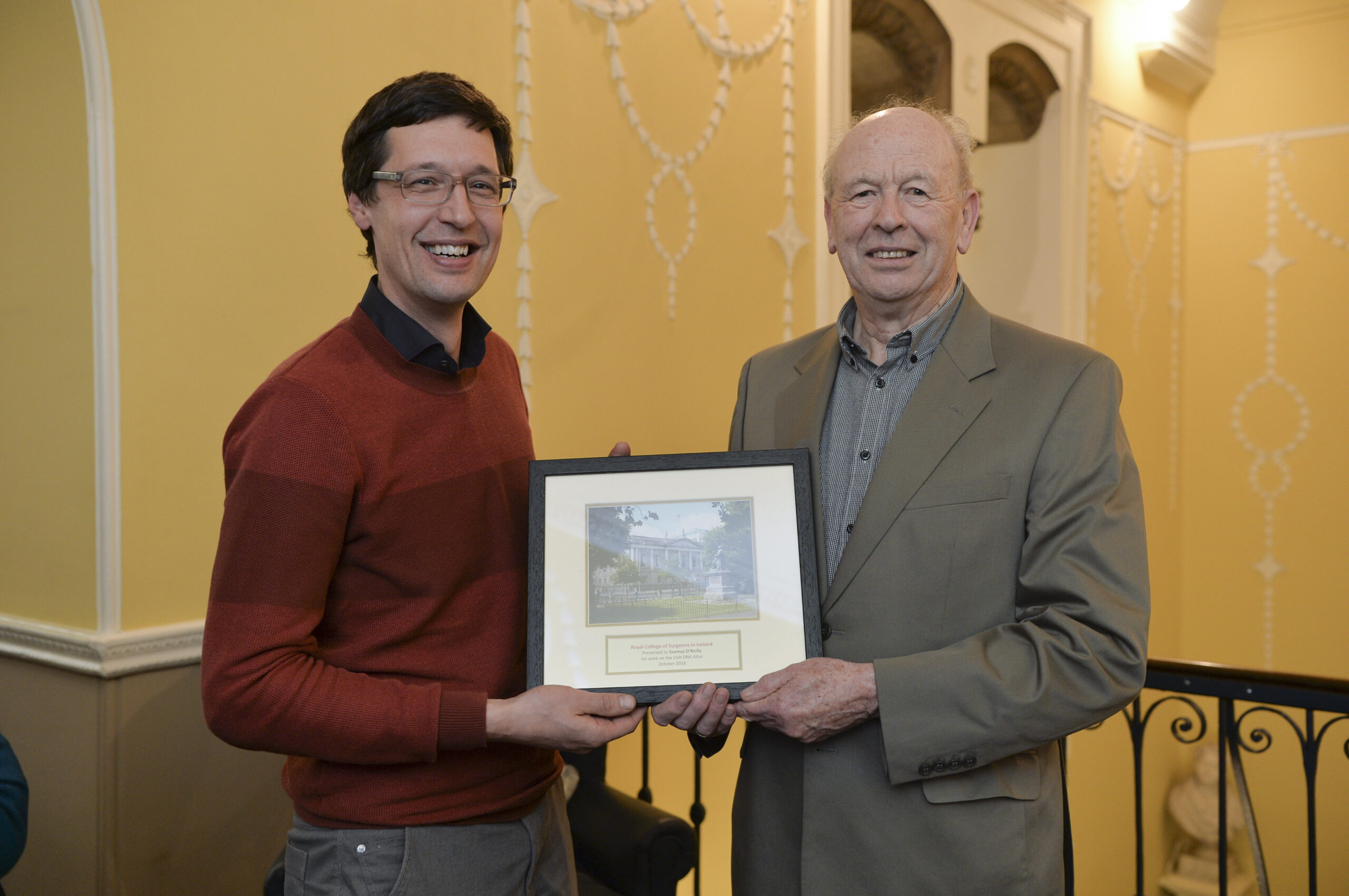
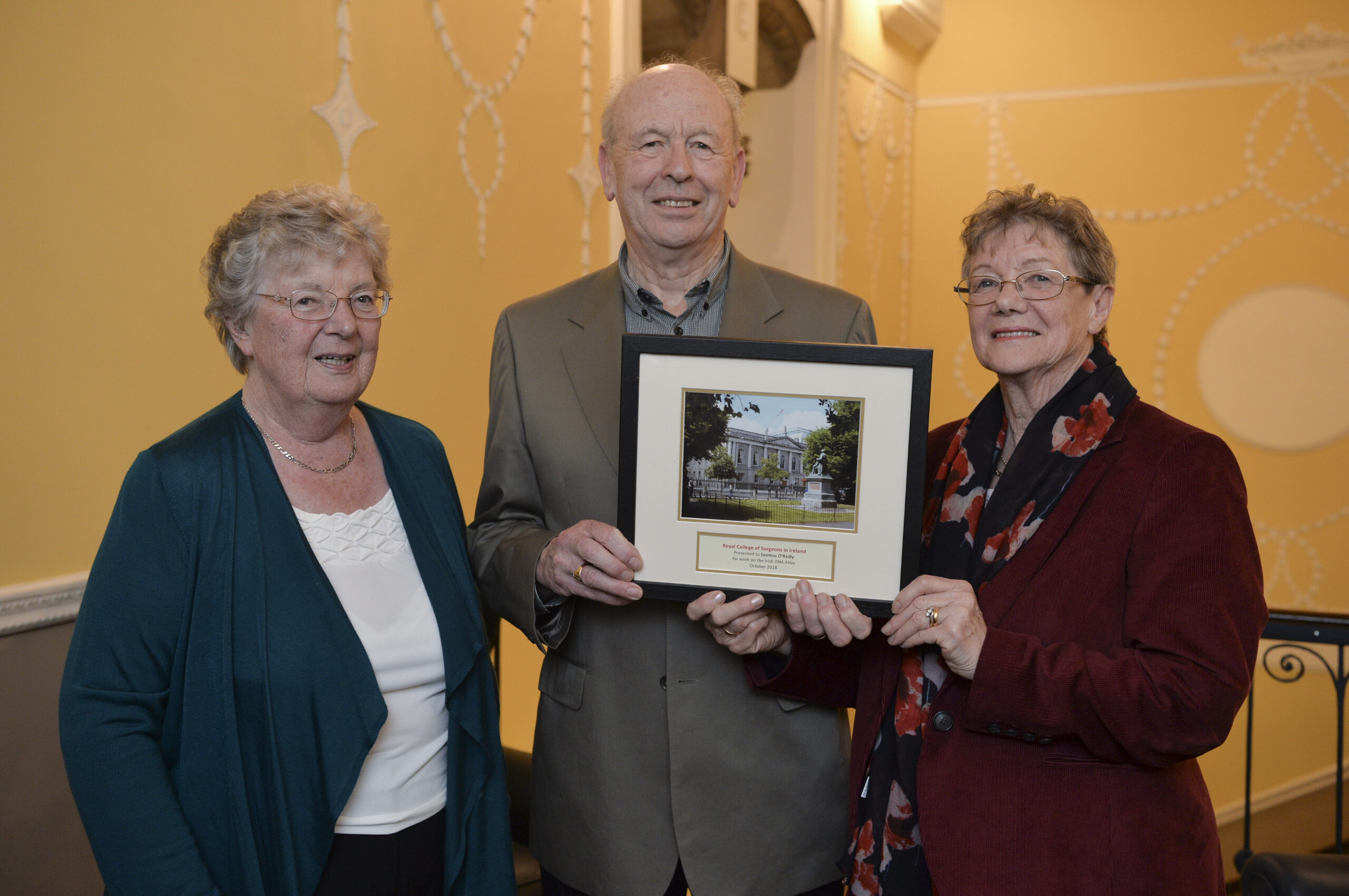








The second aim of the Irish DNA Atlas project is to provide
a reference of Irish genomes which can be compared to subsets of
individuals experiencing a particular disease. By comparing the DNA
profiles of groups of 'cases' (people who experience the disease) and
'controls' (people who do not) it is possible to identify parts of our
DNA that predict disease. Identifying such genetic markers can help
improve diagnosis and the nature of future treatments.
To date several academic research papers have been published based on the ‘Irish DNA Atlas’ biobank including the groundbreaking first genetic map of Ireland in ‘The Irish DNA Atlas: Revealing Fine- Scale Population Structure and History within Ireland’ published in 2019. Other RCSI papers followed including the latest ‘Newfoundland and Labrador: A mosaic founder population of an Irish and British diaspora from 300 years ago’ and, of course, we have the upcoming ‘Demographic History of Ireland and Britain’.
To date several academic research papers have been published based on the ‘Irish DNA Atlas’ biobank including the groundbreaking first genetic map of Ireland in ‘The Irish DNA Atlas: Revealing Fine- Scale Population Structure and History within Ireland’ published in 2019. Other RCSI papers followed including the latest ‘Newfoundland and Labrador: A mosaic founder population of an Irish and British diaspora from 300 years ago’ and, of course, we have the upcoming ‘Demographic History of Ireland and Britain’.
Also, many other excellent genetic studies have been conducted with
reference to, or relying upon, the research undertaken by the Irish
DNA Atlas project and, again, with excellent papers published by
individual researchers and institutions around the world.
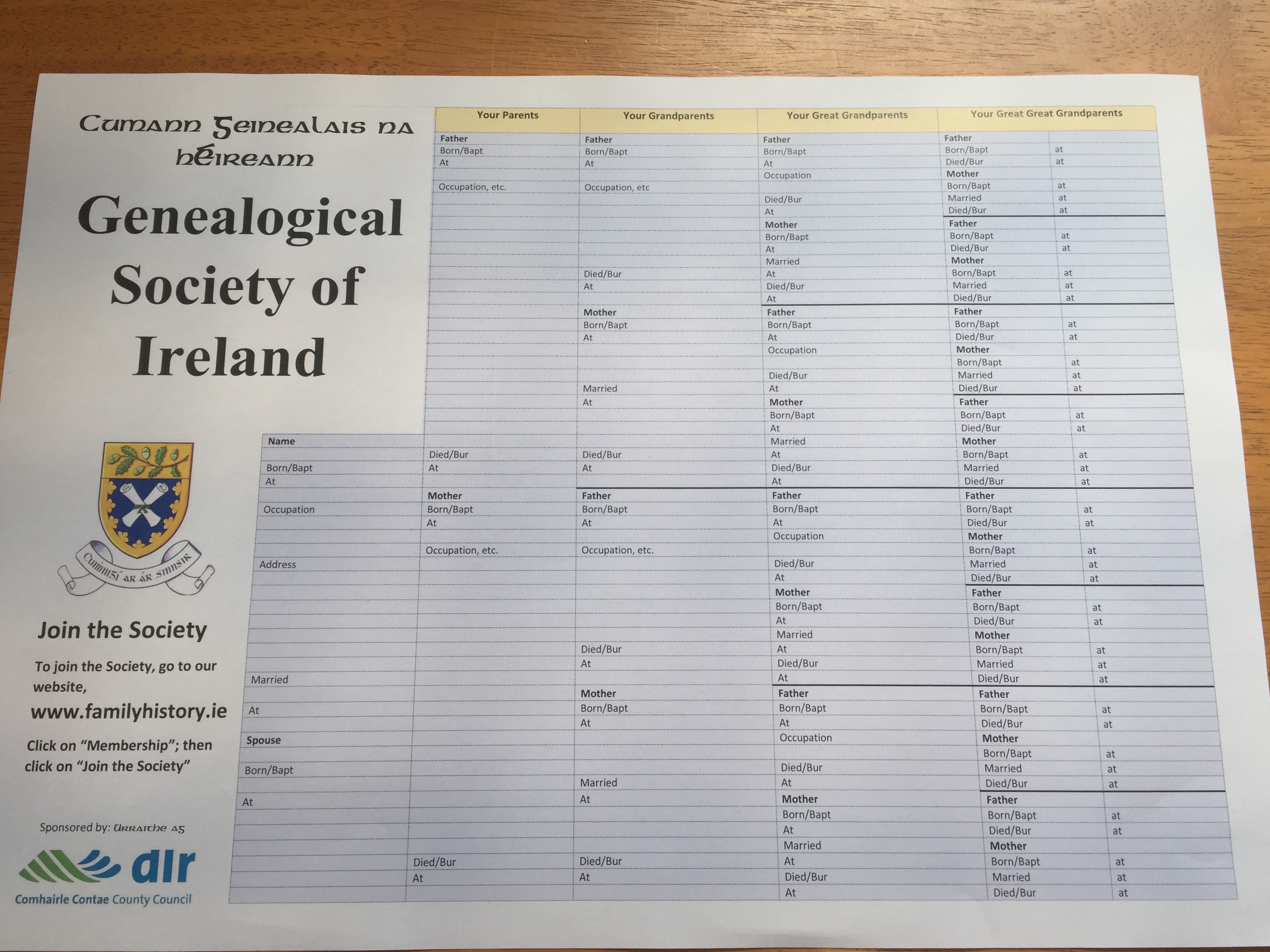
The following videos are available on the Society’s YouTube channel and are available on this website
Irish DNA Atlas (4)
No results found
New participants are always welcome and if you would like to get involved it is simple – here is all you need:
1
Have the details on the birth date and birth location of each of
your eight great grandparents.
2
Your eight great grandparents must have been born within a
50km radius of each other.
3
We will provide you with a Birth Brief like the one shown on
this page for you to complete.
4
The completed Birth Brief should have, working back from
yourself, details of your parents, grandparents and, of course,
your great grandparents.
5
When we receive your Birth Brief, this information is checked
by the Genealogical Society of Ireland team to ensure that it
meets the criteria.
6
You will have also received a Sample Kit for your saliva sample
that we send to the team at the Royal College of Surgeons in
Ireland (RCSI) for analysis.
7
The team at the Genealogical Society of Ireland will do a
surname analysis and plot the birth locations by GPS – longitude
and latitude on the map of Ireland.
8
The DNA scientific data (Your Sample) and the genealogical
data (Your Ancestry) is then added to the database for
comparative analysis and further scientific study.
One thing to remember is that the Irish DNA Atlas is NOT an
ancestry tracing service. If you wish to have such a service, there are
many well-known corporations offering such services for a fee.
The Irish DNA Atlas is a scientific and academic research project,
and your participation is helping us to understand our history and the
population movements and settlement across the island of Ireland.
For further information please email: [email protected]
A link to the website of the Royal College of Surgeons in Ireland (RCSI) is provided below.
A link to the website of the Royal College of Surgeons in Ireland (RCSI) is provided below.
